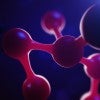
New Rice center to address impact of climate change on coastal economic powerhouses
Globally, 800 million people living in hundreds of urban areas will face grave social and economic risks from sea level rise and routine coastal flooding by 2050.

New Rice center to address impact of climate change on coastal economic powerhouses
Globally, 800 million people living in hundreds of urban areas will face grave social and economic risks from sea level rise and routine coastal flooding by 2050.

Rice bioengineers develop lotus leaf-inspired system to advance study of cancer cell clusters
Rice bioengineers have harnessed the lotus effect to develop a system for culturing cancer cell clusters that can shed light on hard-to-study tumor properties. The new zinc oxide-based culturing surface mimics the lotus leaf surface structure, providing a highly tunable platform for the high-throughput generation of three-dimensional nanoscale tumor models.

Rice’s Shepherd School of Music announces 2024-25 season
The Shepherd School of Music at Rice University is preparing for a monumental milestone, beginning a multiyear celebration this fall in honor of the school’s 50th anniversary.

More than 75% of in-district respondents signaled their support for a bond that does not result in a tax increase.

Researchers teaching artificial intelligence about frustration in protein folding
Peter Wolynes and his colleagues have found a new way to predict how proteins change their shape when they function.

Sanjoy Paul appointed executive director of the Rice Nexus, aims to ‘shape the future of technology’
Rice has appointed Sanjoy Paul as executive director of the Rice Nexus, the university’s premier innovation factory in the Ion that will offer state-of-the-art facilities for prototyping, testing and launching new ventures by Rice faculty and students.

ChatGPT could help people with creativity in everyday tasks, study says
ChatGPT, the generative artificial intelligence technology developed by OpenAI, could help humans with daily, creative tasks — even tasks typically thought to require the human ability to “read between the lines,” according to new research by the University of Houston and Rice University. Its capability has proven to be superior compared to traditional Google search or even human brainstorming without any technical assistance, the study authors argue.

Musical powerhouses strengthen offerings at Rice’s Shepherd School of Music
Rice's Shepherd School of Music is celebrating the return of alumni Cristian Măcelaru and the addition of opera luminary Patrick Summers to its faculty.

Rice Innovation awards second cycle of One Small Step Grants
Rice Innovation announced its two most recent awardees of the One Small Step Grant , marking a significant milestone in accelerating the transition from lab to market for these Rice-developed technologies. Launched in September 2023, the grant aims to support lab-stage projects across campus, providing crucial capital for projects to spin out of the university and successfully attract investment from angel investors and venture capital.

Glaciers in peril: World’s first glacier graveyard and global glacier casualty list unveiled
Iceland is a land made famous by its glaciers, but these ancient ice forms in the island country and around the world are in danger amid rising global temperatures.

Researchers make breakthrough in fight against COVID-19
Jose Onuchic is part of a research team that has made a discovery in the fight against SARS-CoV-2, the virus responsible for COVID-19.

New twist on synthesis technique developed at Rice promises sustainable manufacturing
James Tour’s lab at Rice has developed a new method known as flash-within-flash Joule heating.

OpenStax Assignable expands, brings interactive learning to higher education
OpenStax, a nonprofit initiative of Rice, announces the expansion of OpenStax Assignable, a product allowing instructors to create custom assignments from high-quality, peer-reviewed OpenStax resources directly within their institution’s learning management system (LMS). The expansion of Assignable is aligned with the OpenStax commitment to expand access to high-quality educational materials and experiences to all.

Rice’s Ashutosh Sabharwal will lead a research project dedicated to the design and development of a modular platform for wireless networking, imaging and sensing that will significantly expand research capabilities and catalyze innovation in support of 6G wireless.

A new paper from Rice’s Baker Institute for Public Policy argues that an annexation of Taiwan by the People’s Republic of China (PRC) would trigger economic shocks and diminish the quality of life for populations across Asia and beyond, as well as have devastating impacts on American interests and Americans’ well-being.